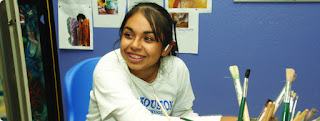Friday, September 30, 2016
Project BOLD Teaches Girls Self-Defense
Madhu Kumar is an established scientist with experience in the areas of cancer therapy, circulating cell-free DNA, immune therapies, and cancer genetics. In addition to his research, Madhu Kumar serves as a scientific advisor and volunteers as a tutor for Girls, Inc.
Girls, Inc., is a national organization devoted to providing girls with educational and recreational programs to improve their health and well-being and help them to succeed in their endeavors. Girls, Inc., dates back to the industrial revolution and has since continued to serve as support for girls through teaching and creating awareness of girls’ struggles. The organization has a multitude of ways that volunteers can donate to the cause or give their time.
Many of organization’s programs are educationally focused, providing girls with additional learning opportunities in media and economic literacy, science, technology, sexual education, and more. One of these programs is Project BOLD, which focuses on giving participants smart strategies for dealing with life in their home, community, and personal relationships, as well as online. The course also provides self-defense instruction, and older girls are encouraged to take on a project within their own community to assist in the general health and safety of girls in their area.
Tuesday, September 20, 2016
New England Innocence Project
Madhu Kumar is an experienced scientist who recently served as a scientific advisor for Wilson Sonsini Goodrich & Rosati. Outside of work, Madhu Kumar serves as a mentor for the New England Innocence Project.
The New England Innocence Project is an organization that provides organized pro bono representation for people who claim to have been wrongfully convicted. A relatively recent project, The New England Innocence Project was founded in 1997 by a group of lawyers who felt passionately about the innocent people who had no representation in court. Along with providing this support, the New England Innocence Project works to raise awareness of false conviction.
In doing so, the New England Innocence Project also confronts the main question: how does wrongful conviction happen? On its website, the project goes into detail on this topic. The causes include eyewitness misidentification, unvalidated forensic science, false confessions, snitch (informant) testimony, police and prosecutorial misconduct, and poor defense representation. To learn more about each specific cause, visit www.newenglandinnocence.org/causes-of-wrongful-convictions.
Monday, September 12, 2016
Dr. Madhu Kumar, a consultant with the New England Innocence Project, received his doctoral degree in biology from the Massachusetts Institute of Technology in Cambridge. As a consultant, Dr. Madhu Kumar helps the New England Innocence Project spread awareness and information regarding wrongful imprisonment.
Eyewitness misidentification is by far the most common cause of wrongful convictions in the United States’ criminal justice system. Nearly 76 percent of cases overturned due to DNA evidence have involved at least one instance of an eyewitness incorrectly identifying a suspect. Experts have identified a myriad of factors that can result in a false identification, though most incidents can be attributed to the imperfect nature of human recall.
On the opposite end of the spectrum, inappropriately utilized forensic science is another common cause behind false incarceration. In recent years, the emerging field of forensic science has helped legal professionals and law enforcement officers solve a number of cases. However, certain methods and technologies have yet to be approved by the legal and scientific communities, and for good reason. Invalid science, such as bite mark analysis, has figured into more than half of US cases being reversed due to DNA evidence.
Subscribe to:
Posts (Atom)


